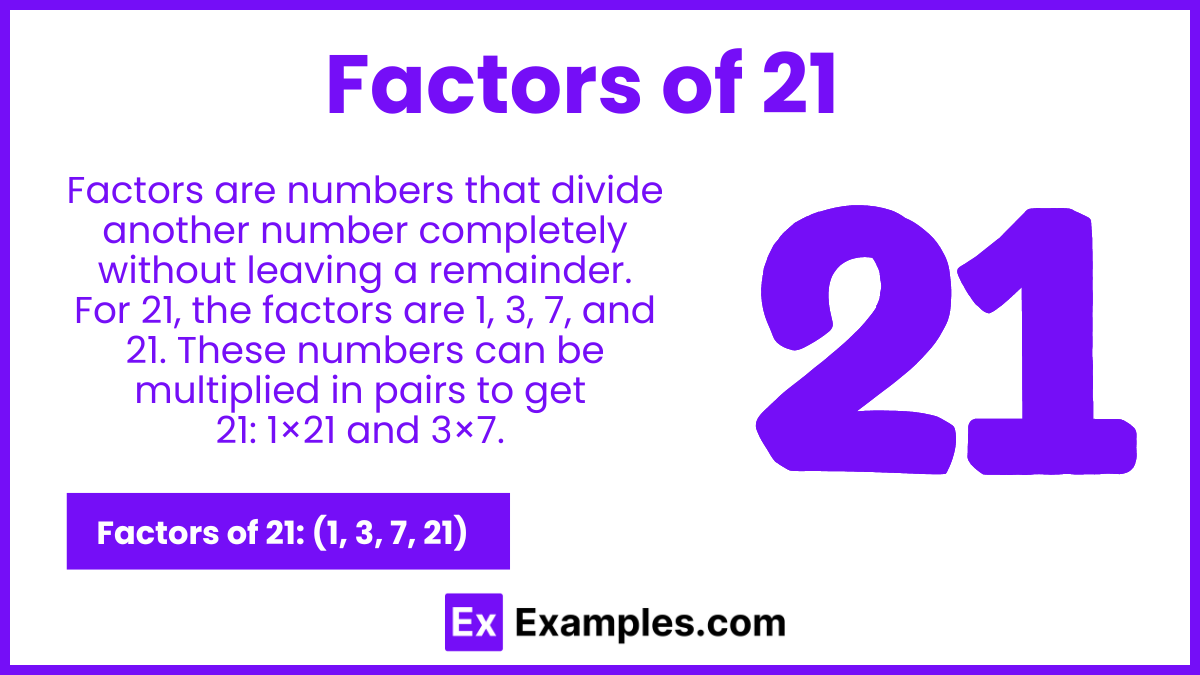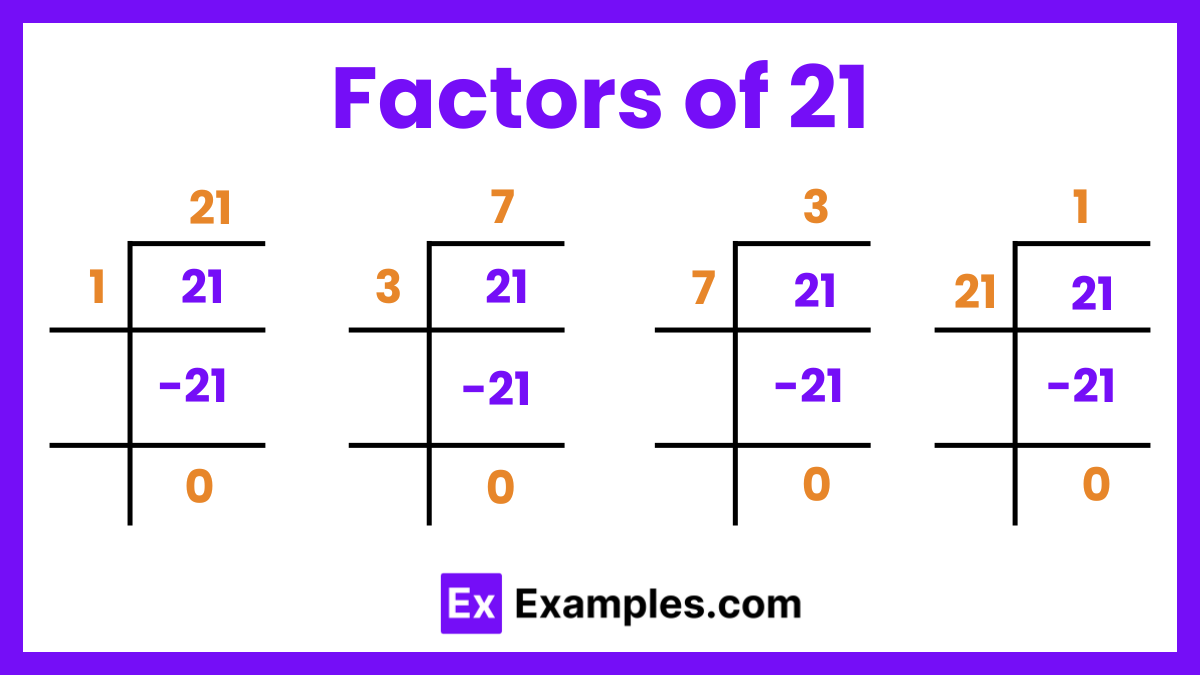Which of the following is a factor of 21?
5
7
14
10

The factors of a number is a fundamental aspect of mathematics. The number 21 is a composite number, meaning it has multiple factors. Factors are numbers that divide another number exactly without leaving a remainder. For 21, these factors are 1, 3, 7, and 21. Identifying these factors is useful in various mathematical contexts, such as simplifying fractions, finding common denominators, and solving equations. The number 21’s factorization also includes both positive and negative pairs, enhancing its applications in different mathematical problems. Exploring the factors of 21 helps in grasping essential concepts in number theory and arithmetic.

The factors of 21 are 1, 3, 7, and 21. These numbers divide 21 evenly without leaving a remainder. As a composite number, 21 has several factors. Knowing these factors helps in simplifying fractions, finding common denominators, and solving mathematical problems, offering essential insights into number theory and arithmetic.
The factor pairs of 21 are:
These pairs include both positive and negative factors that multiply together to equal 21.
Calculating the prime factors of a number involves breaking it down into its basic prime number components. Prime numbers are those that have no divisors other than 1 and themselves. For composite numbers like 21, this process helps in understanding its structure and simplifying mathematical operations. Here’s how you can calculate the prime factors of 21.
Therefore, the prime factorization of 21 is 3 × 7.
The factors of a number is crucial for various mathematical applications. The number 21 is a composite number with several factors. Knowing these factors can help simplify fractions, solve equations, and understand number theory. Here are some tips to work with the factors of 21 effectively.
The sum of the factors of 21 is 1 + 3 + 7 + 21 = 32.
The prime factorization of 21 is expressed as 3 × 7.
The greatest common factor of 21 and 28 is 7, as it is the largest number that divides both without a remainder.
No, there are no even factors of 21 because 21 is an odd number and cannot be evenly divided by 2 or any other even number.
The multiples of 21 are: 21, 42, 63, 84, 105, 126, 147, 168, 189, 210.
The smallest factor of 21 is 1.
Text prompt
Add Tone
10 Examples of Public speaking
20 Examples of Gas lighting
Which of the following is a factor of 21?
5
7
14
10
What is the largest factor of 21?
1
3
7
21
Which number is not a factor of 21?
1
2
3
7
If you divide 21 by its smallest factor, what is the result?
7
21
1
3
Which of these pairs has factors of 21?
1 and 20
3 and 7
2 and 14
5 and 8
What is the sum of all factors of 21?
32
21
12
7
Which number is both a factor of 21 and a multiple of 3?
4
2
7
3
Which of the following is a common factor of 21 and 42?
1
5
21
10
If you subtract 1 from the smallest factor of 21, what do you get?
0
1
2
7
Which of these numbers is a factor of 21 and also a factor of 42?
2
14
7
5
Before you leave, take our quick quiz to enhance your learning!

